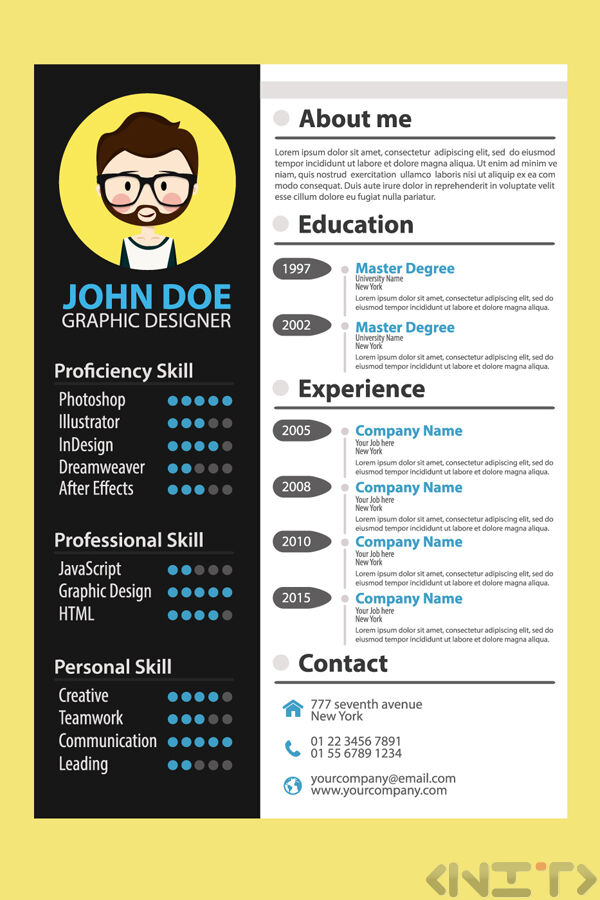
Approximate reading time: 2m 22s
Effective screening of job applicants' CVs is an important step in the recruitment process. It is your responsibility to select those potential employees whose skills and experience seem relevant and whom you can subsequently invite for an interview. But what to look for in a job application CV?
How to choose the best CV?
The main thing to look for in the content of a CV is previous experience, skills and knowledge. But there are a few more subtleties to keep in mind when reviewing job candidates' resumes.
- Has the candidate been out of work for a long time? If so, don't assume that necessarily means the person isn't qualified. But keep in mind that you may need to train him further, or he may need more time to adjust to the work process.
- How often has the candidate changed jobs? Be wary of resumes that list several jobs at different companies in a short period of time. Frequent job changes may indicate that the individual is not loyal to their employer. On the other hand, a candidate who has stayed in the same position for many years suggests a lack of motivation and initiative.
- Don't just look at experience. Never automatically reject a job candidate just because they lack work experience. They may have a more relevant education, or have volunteered in an organization where they acquired the necessary skills.
- Extracurricular activities. Consider the individual's hobbies and activities outside of work. Note whether these are team or individual activities. If the candidate has mentioned hobbies on their resume, it means they are looking for a work-life balance.
- Pay attention to the small details. Has the candidate included information about skills relevant to the position? Are there spelling and grammatical errors? The job application CV should be targeted to the specific position - this shows that the person is genuinely interested in your offer, and has taken the time to personalise their CV.
- Never discriminate against job applicants. Never determine if a person is right for the position by their age, gender, marital status, sexual orientation, cultural background, religion. Your personal preferences and opinions have no bearing on people's qualifications.
- Never be hasty. Take the time to review each resume carefully. If you rush, you may miss important information about the candidate's experience and skills.
- Pay special attention to work experience. Carefully read the details of the candidate's responsibilities and accomplishments in previous jobs. Generic descriptions of work experience can be deceptive.
- What is the candidate looking for in their next job? Has the candidate written down what they are looking for and what they expect from their new employer? Is this description personalized to your company or does it describe any job in the world.
- Has the candidate briefly described their qualifications and experience? If he or she has taken the time to briefly describe these things, it will help you see if he or she has the characteristics you are looking for.
- Don't be hasty. If you're not sure if a candidate is a good fit, don't make any hasty decisions and come back to their application later.
What to look out for when screening CVs for job applications?
- Long periods of time out of work.
- Evidence of low responsibility.
- Frequent change of employers.
- Frequent change of job positions.
If you follow our resume screening tips, it will make your recruiting process faster and better. You will only select candidates who have the right experience, knowledge and skills. Be sure to note which parts of the resume are not clear enough and require further clarification. Ask the necessary questions during the interview.
Sources: https://www.go2hr.ca/articles/resume-screening-finding-right-person-right-job
https://www.thebalance.com/gone-in-thirty-seconds-how-to-review-a-resume-1919139